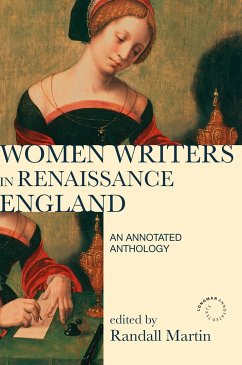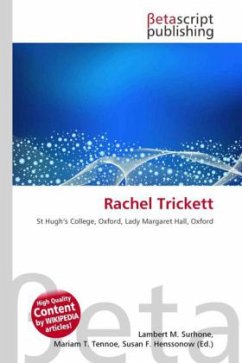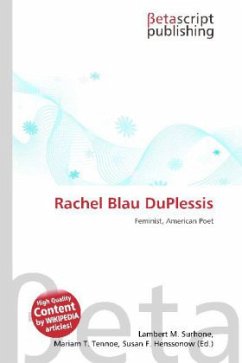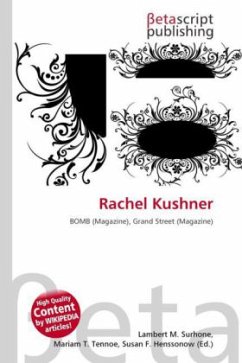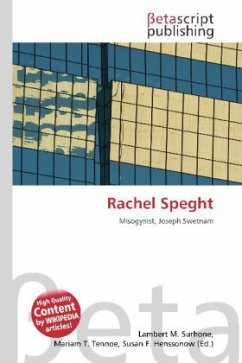
Rachel Speght
Versandkostenfrei!
Versandfertig in 6-10 Tagen
19,99 €
inkl. MwSt.

PAYBACK Punkte
10 °P sammeln!
Please note that the content of this book primarily consists of articles available from Wikipedia or other free sources online. Rachel Speght (born 1597, death date unknown) was a poet and polemicist. She was the first Englishwoman to identify herself, by name, as a polemicist and critic of gender ideology. Speght, a feminist and a Calvinist, is perhaps best known for her tract, A Mouzell for Melastomus (London, 1617). It is a prose refutation of Joseph Swetnam''s misogynistic tract, The Arraignment of Lewd, Idle, Froward, and Unconstant Women, and a significant contribution to the Protestant ...
Please note that the content of this book primarily consists of articles available from Wikipedia or other free sources online. Rachel Speght (born 1597, death date unknown) was a poet and polemicist. She was the first Englishwoman to identify herself, by name, as a polemicist and critic of gender ideology. Speght, a feminist and a Calvinist, is perhaps best known for her tract, A Mouzell for Melastomus (London, 1617). It is a prose refutation of Joseph Swetnam''s misogynistic tract, The Arraignment of Lewd, Idle, Froward, and Unconstant Women, and a significant contribution to the Protestant discourse of biblical exegesis, defending women''s nature and the worth of womankind. Speght also published a volume of poetry, Mortalities Memorandum with a Dreame Prefixed (London, 1621), a Christian reflection on death and a defense of the education of women. Speght was born the daughter of a Calvinist minister in London, England in 1597. Her writings reveal that she was unusually well educated in rhetoric, logic, classical and Christian texts, and Latin, and that she had a thorough knowledge of Christian scripture.



